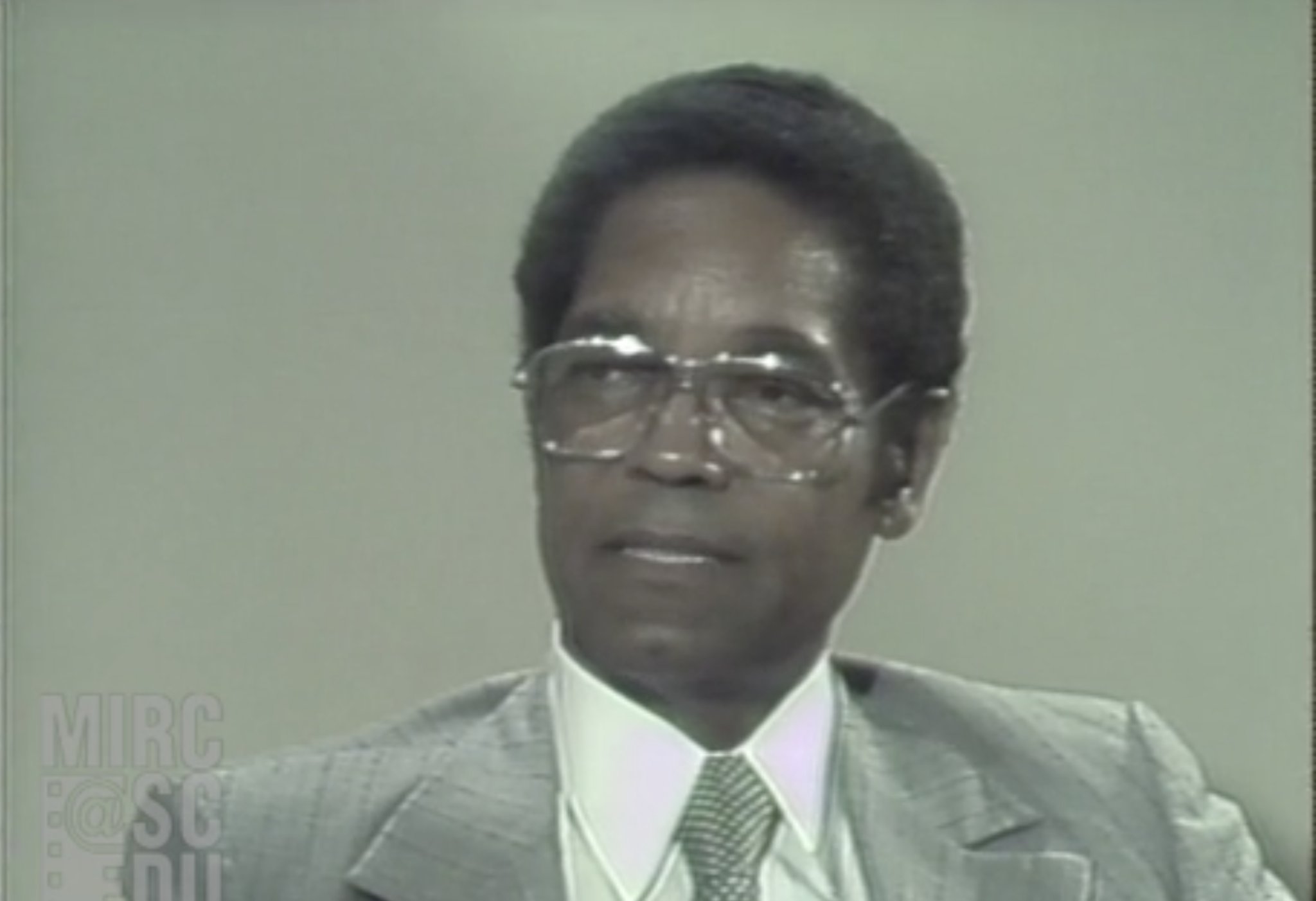In September of 1979, Matthew J. Perry, Columbia native and graduate of South Carolina State University, was confirmed by the United States Senate as a judge on the U.S. District Court for the District of South Carolina. Perry had been nominated for the role by Senator Fritz Hollings and confirmed by President Jimmy Carter, and he served in the court until his death in 2011.
Being named the state’s first Black federal judge was the cap on a career full of firsts and courtroom wins for civil rights in South Carolina. Perry was raised in Columbia and began attending South Carolina State before being drafted into the army during World War II. When he returned to the United States, he brought a dream of becoming a lawyer after witnessing a lifetime of segregation and injustice. In an oral interview with The University of South Carolina, he recalls being barred from entering a restaurant at an Alabama train stop and having to order from the window, while European prisoners of war who were being transported to a camp were allowed to sit and eat inside.
After his military service, he finished his undergraduate degree in 1948 and had planned to travel out of state for law school but was convinced to attend law school at South Carolina State by professors who had just taken jobs there. The law school was in its infancy, created so that the University of South Carolina Law School did not have to admit Black students, and was still working on getting accredited when Perry began. In fact, he was a member of only the second graduating class in 1951. After becoming a member of the bar, he began practicing in Spartanburg and in 1961, he moved back to Columbia to become Chief Council for the South Carolina Conference of Branches of the NAACP.

Image of Judge Matthew J. Perry during a 1980 interview conducted by Dr. Grace Jordan McFadden of the University of South Carolina. From the South Caroliniana Library, University of South Carolina, Columbia, S.C.
Many of Perry’s notable cases fought against segregation or for civil rights, including the 1957 retrial of Flemming vs. South Carolina Electric & Gas Co. (SCE&G). Sarah Mae Flemming sued SCE&G, who ran the bus system in Columbia, after she was struck by a bus driver for sitting in a front seat, and, after being ordered to leave the bus, attempting to exit using the front entrance instead of the back. The jury ruled in favor of SCE&G, but the case played a role in desegregating transportation. Another major case for Perry was his representation of Harvey Gantt, the Black student who desegregated Clemson University in 1963. His cases also helped to desegregate restaurants – including the 1964 Newman vs. Piggy Park Enterprises, one of the first uses of the Civil Rights Act.
In the 1970s, Perry was nominated by Senator Strom Thurmond, a former Dixiecrat, to be a judge on the United States Military Court of Appeals, and his nomination was approved by President Gerald Ford in 1976.He was the first Black man from South Carolina on that bench. He, of course, repeated that first again in 1979 with his appointment to the U.S. District Court.
In the early 2000s, the Matthew J. Perry Federal Courthouse in Columbia was constructed – a building name that was initially opposed by Sen. Strom Thurmond. Perry died in 2011 at his home, while still serving as a senior judge on the U.S. District Court.